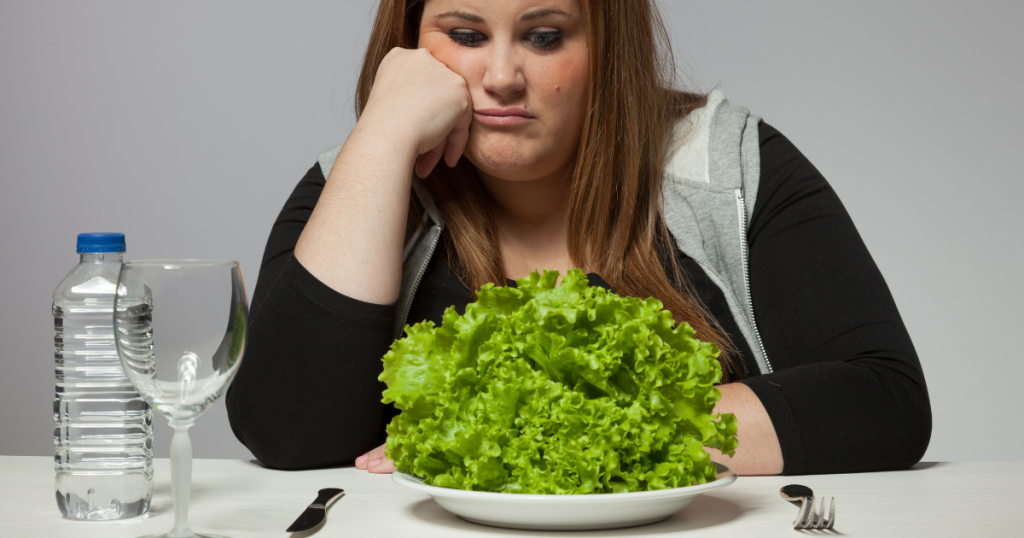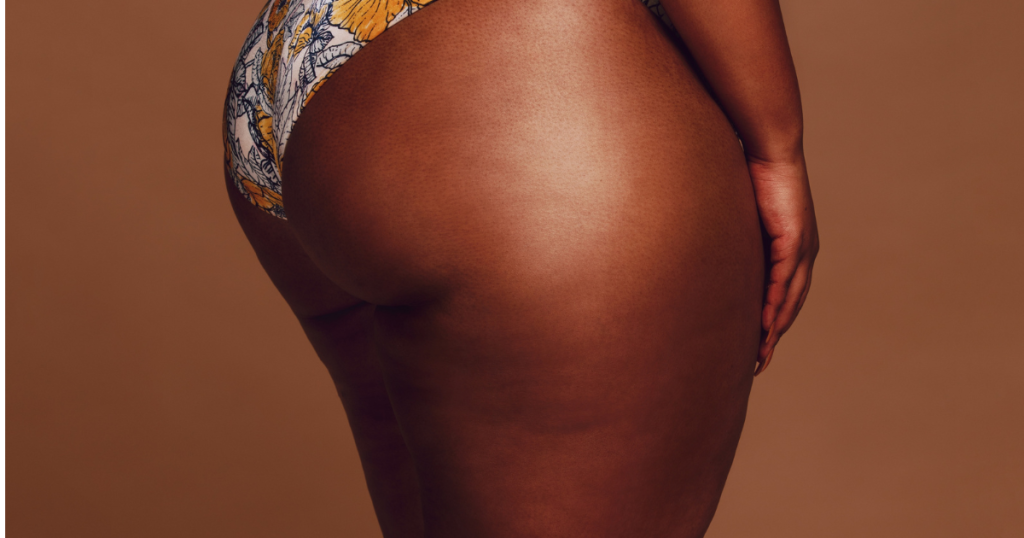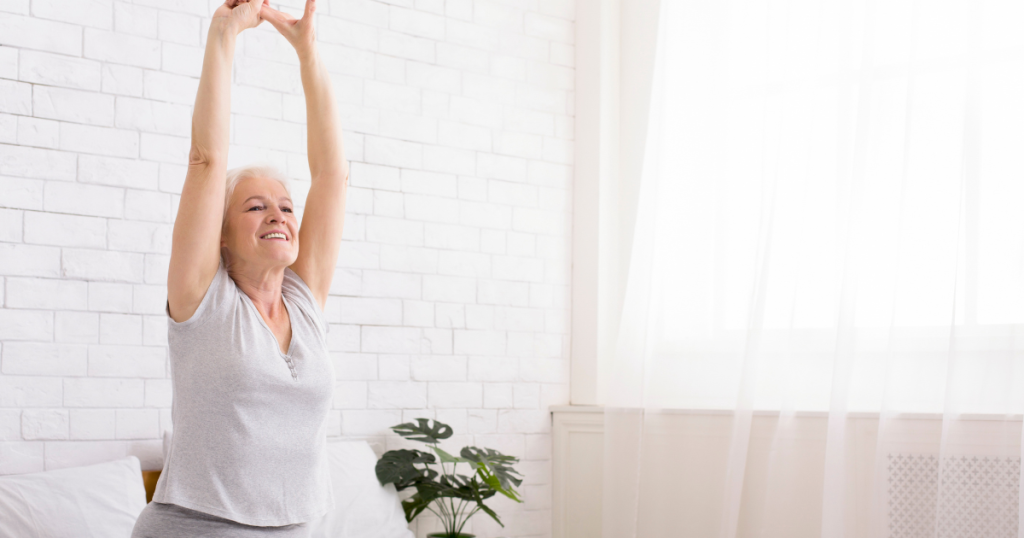Open up any social media app, and you’ll see it – in ads, in videos, in your friends’ posts and photos. Turn on the TV or open a magazine, and you’ll see it – in commercials, in programs, in fashion and makeup ads. You really can’t escape the countless normalized examples of how media affects body image. And you have to wonder if body positive campaigns can even keep up, let alone if they work.
Liking our own body is not easy, especially in Diet Culture. (See earlier posts for more about Diet Culture).
Disliking and being super-critical of our own body have become the norm.
Beauty standards are narrowly defined. Most people will never look like media images, no matter how hard they try. And that’s regardless of how many diets, cosmetic surgeries, or “lifestyle” changes they pursue.
Thanks (but no thanks) to Diet Culture, we praise weight loss, idealize thinness, and think of food as ‘good’ or ‘bad.’
This system of beliefs explains why we talk trash about our own bodies, restrict food, and have difficulty seeing our own beauty.

Diet Culture is so powerful that we may not even realize it exists…
…just as fish don’t know they’re wet.
Tina Fey describes social media’s portrayal of Diet Culture pressures in her book, BossyPants.
“Now every girl is expected to have Caucasian blue eyes, full Spanish lips, a classic button nose, hairless Asian skin with a California tan, a Jamaican dance hall ass, long Swedish legs, small Japanese feet, the abs of a lesbian gym owner, the hips of a nine-year-old boy, the arms of Michelle Obama….”
Tina Fey, Bossy Pants (2013).
This is obviously impossible.(The achievement, not the expectation.) But Diet Culture promotes these sorts of ideals, anyway.
And social media is its get-away car.
We take in the images and compare ourselves. Filters and other photoshop techniques make images look extra-convincing, triggering us to feel that much worse about our bodies and selves.
If only we tried harder to manipulate our bodies to be thinner, we too could look like the images on Instagram. (Not!)
That’s why, in general, media is no help when it comes to body image. (Unless by ‘help’ you mean promoting body-loathing.)
Self-acceptance is difficult when we don’t measure up to what media defines and presents as attractive.
And, once that failure to measure up becomes internalized as insecurity about and resentment toward our bodies, self-acceptance is all but impossible.Here is where body positivity enters the picture.
Body positivity challenges Diet Culture’s definition of beauty.
The body positivity movement (“#BoPo” for short) promotes acceptance of diverse body sizes and appearances.
#BoPo campaigns are meant to be an alternative to how bodies are typically portrayed.
The hope is that promoting more realistic messages about body size and shape will improve body image.
Body positive campaigns are a way to challenge societal views and address unrealistic standards of beauty. Their mission is to help people accept and feel more confident about their own bodies, regardless of weight or size.
In #BoPo, unique aspects of appearance are viewed in a positive light rather than as deviations from societal (aka Diet Culture’s) ideals of beauty.
Understanding how media affects body image is more important than ever.
Information spreads like wildfire. Lots of ‘liking’ and ‘sharing’ of posts occur constantly. Posts go viral in a matter of minutes.
And unrealistic body standards are reinforced…and accepted as “truth.”
How welcoming and inclusive the idea of body positivity sounds! But is it?
And do body positive approaches influence how media affects body image?
Research on the results of body positive campaigns is mixed.
Jes Baker, a body image blogger and author, calls out the sociopolitical limits of body positivity messages.
Her point: Many bodies are excluded in the body positivity movement.
Rather than including white, able-bodied, flawless women who wear a size 0 or 00, #BoPo posts extend to white, able-bodied, feminine, heterosexual women who wear a size 12 or smaller.
Many bodies are excluded, rejected – as if unworthy of recognition.

Body positivity actually still limits how we define attractiveness. It excludes fat/transgender/dis-abled bodies and doesn’t recognize stigma, oppression, or prejudice.
Body positivity still applies only to women of a certain size, shape, skin color, and sexual identity. It doesn’t improve weight stigma, fat phobia, or other kinds of prejudice.
A 2020 study of over 250 Instagram posts suggests contradictory messages are common in so-called body positivity land. Weight loss support or praising thinness are examples of contradictions.
They also identified inner-positivity as the most common body positivity theme on Instagram.
Inner positivity posts focus on courage and resilience.

These are messages that can benefit all of us, regardless of how we feel about our bodies or how our bodies look.
The best way to reduce media’s effects on body image?
- Post some images without people. Puppies and nature scenes, anyone?
- Comment on posts in a way that is not about size, shape, or shaming.
- Emphasize “inner-positivity” in your feed.
- Take breaks from social media.
- Follow body positive influencers.
Social media is not going away. Nor is its influence on social norms.
There’s a lot of room to reclaim body positivity for more people. Until then, body positivity efforts remain short-sighted.
Why not use social media in a way that recognizes all bodies, regardless of size, shape, gender, or age?
Until we address the ‘ism’s’ (racism, weightism, fat stigma, misogyny) of the world, body positivity will continue to marginalize people.
And there is nothing positive about that.
Dr. Elayne Daniels is a psychologist, consultant, and international coach in MA who is passionate about helping people feel more comfortable in their bodies. She also works with people who identify as Highly Sensitive and with individuals in eating disorder recovery. Contact her here.
Posted in Overcoming Body Image Issues






